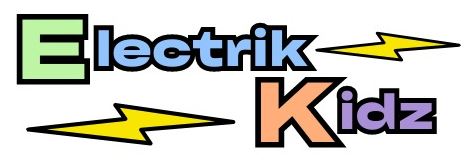
Learning basic math is the foundation of a strong education, and it’s something that children need to learn as early in life as possible. For many students, math can be intimidating or difficult to understand; yet, without mastering the basics of mathematics, children will struggle throughout their school years and beyond.
The truth is that any knowledge gained from studying math carries over into other areas such as physics, engineering, economics, and finance – so having a good understanding of the fundamentals will set young minds up for future success! This article will explore why learning basic math early on is important and its benefits for children.
Curious about the Importance of Basic Math Skills?
Mastering basic math concepts is a crucial part of education that should not be overlooked. Understanding basic arithmetic and problem-solving techniques as early as possible is important – especially during elementary school! The proper foundation for higher-level mathematics starts with having a good grasp of foundational topics like addition, subtraction, multiplication, division, and fractions.
Learning these fundamental calculations will improve critical thinking skills and prepare your child or student for success in more complex classes such as advanced algebra, trigonometry, geometry, and calculus. Understanding the basics makes it much easier to comprehend other forms of mathematics later down the road.
Keep reading and discover the importance of basic Math skills!
Introduction to Early Math Learning
Early math learning is an important foundation for a child’s education. It may seem small, but introducing basic concepts such as counting and patterns in the early years can lead to a greater understanding of more complex mathematical ideas later. Math is not just about numbers but also teaches problem-solving skills and logic.
Introduction to Early Math is a Broad Range of Basic concepts that include:
- Counting numbers, Perception of quantity if it is more or fewer.
- Identifying shapes such as circles, squares, and triangles.
- Understanding spatial relations like over or under, back and forward.
With fun activities and games, early math learning can become an enjoyable adventure that sets a child on the right path to success. So don’t be afraid to break out the blocks and number cards and let your child’s curiosity lead the way in the early stages of math learning!
The Benefits of Learning Math Skills at a Young Age

The benefits of learning math skills at a young age are obvious. A child who develops an early understanding of basic mathematical concepts will have a head start in school and be better prepared for more complicated topics.
Here are the Benefits of Learning Math Early:
- Improved problem-solving skills: Mathematics is all about problem-solving, and when children learn early on, they will develop their critical thinking and logic skills much more quickly.
- Increased confidence in the classroom: When students have a strong base in math, it can lead to greater self-confidence, allowing them to take on challenging problems without fear.
- A better understanding of other subjects: Math is a building block for many other disciplines, and having an early grasp of basic math topics can make learning science, engineering, or economics much easier down the road.
- Greater academic success: Learning math early on can lead to greater academic success, as students will have a better foundation to build their knowledge.
- Enhanced career prospects: Strong math skills can open up more job opportunities in finance and engineering.
Math is a core skill that will open up countless opportunities for them, such as entry into higher education or even high-paying jobs. With early math learning, you can give your children a great start and set them up for success!
How Our Math Learning Games Aid in Early Math Education?
Our interactive math game is designed to provide early math education in a fun, engaging way. Through our game, children will learn basic math concepts such as counting, shapes, and spatial relations.
Math Learning Game aid in early Math Education by:
- Provide an enjoyable, interactive way to learn.
- Encourages active participation.
- Builds a strong foundation for future math education.
- Improves critical thinking skills and logic.
- Enhances self-confidence in the classroom.
The game will have entertaining activities, colorful characters, and challenging puzzles to keep your child or student excited about learning. The engaging environment will help them learn key math concepts in a fun and exciting way. With our math game, you can rest assured your children are getting it.
Frequently Asked Questions About The Importance of Learning Basic Math Early
Q: What are the benefits of learning math early?
A: Learning math early can help students develop problem-solving skills, increase self-confidence, build a solid foundation for more complex concepts, and open up career opportunities later.
Q: How can I help my child learn basic math at home?
A: There are many ways to help your child learn basic math at home. You can use counting games, play with number cards or blocks, and have them explore geometry by drawing shapes.
Q: What is the best way to teach early math concepts?
A: The best way to teach early math concepts is through fun activities and games that engage children in the material. Teaching math should be playful and enjoyable, not a chore or something boring.
Conclusion
All in all, the importance of mathematics and numeracy skills for success cannot be overstated. With early math learning comes a wealth of opportunity, allowing students to build confidence and understanding of skills, giving them a head start on their educational journey. Teachers and guardians have an important role in student development; building foundations and scaffolding-related skills helps students progressively solve more challenging problems more accurately.
Diverse outcomes can be achieved by starting the journey with numbers early since you never know where it will take you. So why not take the plunge now – begin a mathematical journey of discovery today!
Subscribe to our email newsletter to get the latest posts delivered right to your email.

Comments